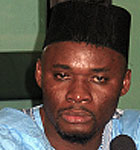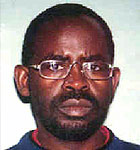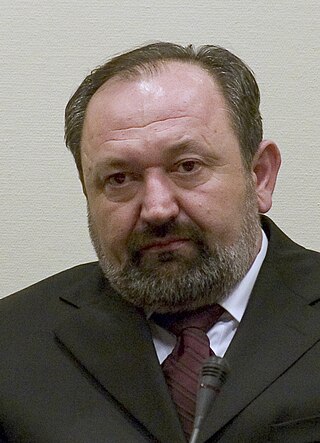Related Research Articles

The International Criminal Tribunal for Rwanda was an international court established in November 1994 by the United Nations Security Council in Resolution 955 in order to adjudicate people charged for the Rwandan genocide and other serious violations of international law in Rwanda, or by Rwandan citizens in nearby states, between 1 January and 31 December 1994. The court eventually convicted 61 individuals and acquitted 14.

The Rwandan genocide, also known as the genocide against the Tutsi, occurred between 7 April and 15 July 1994 during the Rwandan Civil War. During this period of around 100 days, members of the Tutsi minority ethnic group, as well as some moderate Hutu and Twa, were killed by armed Hutu militias. Although the Constitution of Rwanda states that more than 1 million people perished in the genocide, the real number killed is likely lower. The most widely accepted scholarly estimates are around 500,000 to 800,000 Tutsi deaths.

Radio Télévision Libre des Mille Collines (RTLM) was a Rwandan radio station which broadcast from July 8, 1993, to July 31, 1994. It played a significant role in inciting the Rwandan genocide that took place from April to July 1994, and has been described by some scholars as having been a de facto arm of the Hutu government.

Pauline Nyiramasuhuko is a Rwandan politician who was the Minister for Family Welfare and the Advancement of Women. She was convicted of having incited troops and militia to carry out rape during the Rwandan genocide of 1994. She was tried for genocide and incitement to rape as part of the "Butare Group" at the International Criminal Tribunal for Rwanda (ICTR) in Arusha, Tanzania. In June 2011, she was convicted of seven charges and sentenced to life imprisonment. Nyiramasuhuko is the first woman to be convicted of genocide by the ICTR, and the first woman to be convicted of genocidal rape.
Jean-Paul Akayesu is a former teacher, school inspector, and Republican Democratic Movement (MDR) politician from Rwanda, convicted of genocide for his role in inciting the Rwandan genocide.

Hassan Ngeze is a Rwandan journalist and convicted war criminal best known for spreading anti-Tutsi propaganda and Hutu superiority through his newspaper, Kangura, which he founded in 1990. Ngeze was a founding member and leadership figure in the Coalition for the Defence of the Republic (CDR), a Rwandan Hutu Power political party that is known for helping to incite the genocide.
Athanase Seromba is a Catholic priest from Rwanda who was found guilty of committing genocide and of crimes against humanity during the Rwandan genocide.

The Impuzamugambi was a Hutu militia in Rwanda formed in 1992. Together with the Interahamwe militia, which formed earlier and had more members, the Impuzamugambi was responsible for many of the deaths of Tutsis and moderate Hutus during the 1994 Genocide against the Tutsi of 1994.
Ildephonse Hategekimana is a Rwandan soldier who participated in the Rwandan genocide.
Ildéphonse Nizeyimana is a Rwandan soldier, who was convicted of having participated in the Rwandan genocide by the International Criminal Tribunal for Rwanda.

Kangura was a Kinyarwanda and French-language magazine in Rwanda that served to stoke ethnic hatred in the run-up to the Rwandan genocide. The magazine was established in 1990, following the invasion of the rebel Rwandan Patriotic Front (RPF), and continued publishing up to the genocide. Edited by Hassan Ngeze, the magazine was a response to the RPF-sponsored Kanguka, adopting a similar informal style. "Kangura" was a Rwandan word meaning "wake others up", as opposed to "Kanguka", which meant "wake up". The journal was based in Gisenyi.

Jean-Bosco Barayagwiza was a convicted génocidaire and politician associated with the Hutu Power movement. A high-ranking civil servant, Barayagwiza served as policy director within the Ministry of Foreign Affairs at the time of the Rwandan genocide. He has been described as one of the "masterminds" of the genocide.
Ferdinand Nahimana is a Rwandan historian, who was convicted of incitement to genocide for his role in the Rwandan genocide.

Grégoire Ndahimana is the former mayor of Kivumu, Rwanda. Indicted and arrested for alleged war crimes by the International Criminal Tribunal for Rwanda (ICTR), Ndahimana is thought to be one of the key figures in the 1994 Rwandan genocide, and is claimed to have had up to 6,000 Tutsi killed. In 2013, he was convicted of genocide and crimes against humanity and sentenced to 25 years in prison.
Jean de Dieu Kamuhanda is a Rwandan politician who was sentenced to life imprisonment by the International Criminal Tribunal for Rwanda (ICTR) for his role in the 1994 Rwandan Genocide.
Life imprisonment in Sweden is a term of imprisonment for an indeterminate length. It is the most severe punishment available in Sweden. Swedish law states that the longest punishment, other than life imprisonment, is a fixed prison term of 18 years. However, a prisoner convicted to life imprisonment may appeal a partially served life sentence to the District Court of Örebro for "fixing" the sentence. Upon success, the sentence is commuted to a fixed sentence of any number of years considered proportionate to the severity of the crime, after which standard Swedish parole regulations apply. Due to new legislation taking effect in January 2022, any offender aged 18 at the commission of the murder can be sentenced to life imprisonment. Previously, an age limit of 21 applied. Prior to 2006, all life sentences were issued without the possibility of parole, although executive clemency was widely issued to commute life sentences to fixed-time sentences in a similar way now exercised by the judiciary. This procedure is the only way a sentence longer than 18 years may be issued in Sweden.

Vujadin Popović is a Bosnian Serb war criminal, who participated in the War in Bosnia and Herzegovina and was convicted of genocide, extermination, murder and persecution and sentenced to life in prison. He was Lieutenant Colonel and the Chief of Security of the Drina Corps of the Army of Republika Srpska.
Drew White (QC) is an international lawyer from Canada best known for his role in the conviction of Colonel Theoneste Bagosora, who the media dubbed "the mastermind" of the 1994 Rwanda genocide and who White referred to in his closing trial submissions as one of the "enemies of the human race".
Capital punishment is no longer a legal punishment in Rwanda. The death penalty was abolished in Rwanda in 2007.
References
- ^ Indictment against Gatete, from the ICTR/IRMCT
- ↑ "Archived copy" (PDF). Archived from the original (PDF) on 2014-01-03. Retrieved 2014-03-30.
{{cite web}}: CS1 maint: archived copy as title (link) - ↑ "Archived copy" (PDF). Archived from the original (PDF) on 2013-03-06. Retrieved 2014-03-30.
{{cite web}}: CS1 maint: archived copy as title (link) - ↑ "Baptiste Gatete, the man who was ?skilled at cruelty, wicked to the soul? - the New Times Rwanda". Archived from the original on 2014-03-31. Retrieved 2014-03-30.
- ↑ "Archived copy" (PDF). Archived from the original (PDF) on 2012-01-21. Retrieved 2014-03-30.
{{cite web}}: CS1 maint: archived copy as title (link) - ↑ Associated Press - Rwandan official guilty of genocide gets life